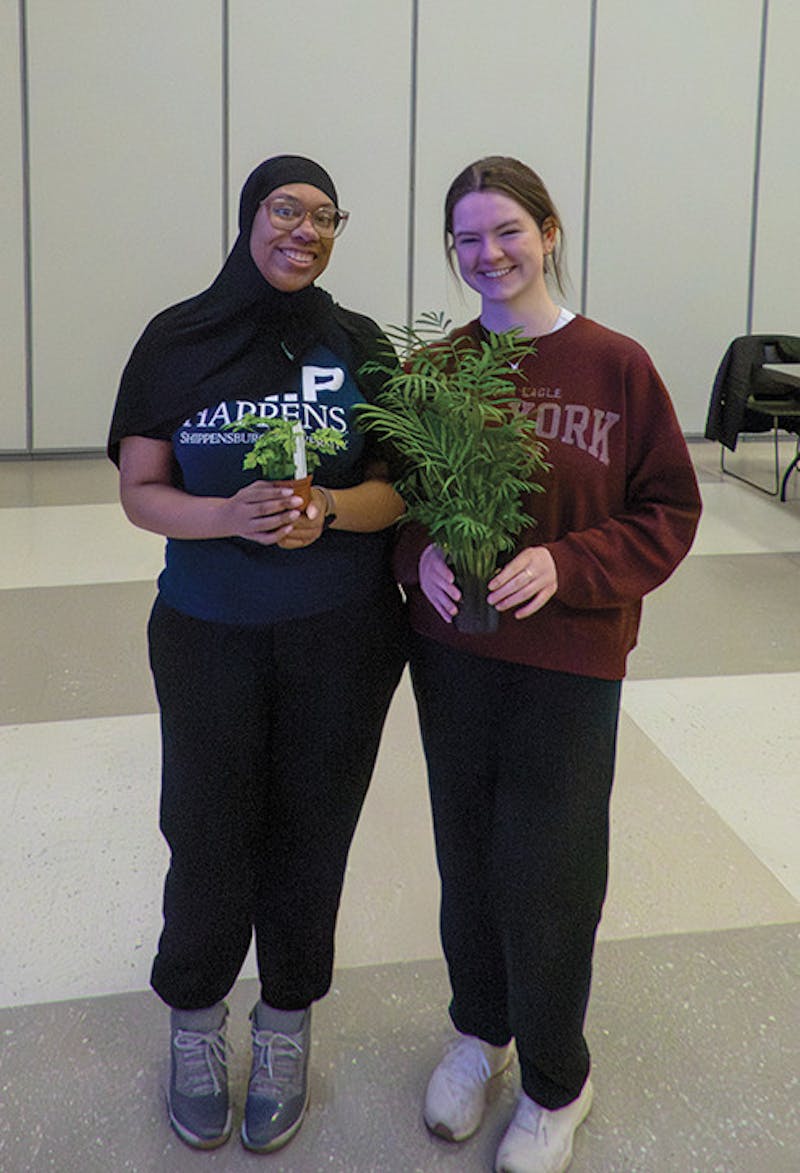In honor of Black History Month, members of the community gathered in the Ceddia Union Building to learn about the importance of sermon and song at the WITF Gospel preview screening and discussion on Thursday night. The event was equipped with a preview screening of the new docuseries, “Gospel,” with a panel of pastors and performances from Shippensburg University’s Harmonic Voices of Truth Gospel Choir.
“We are going to have church tonight,” exclaimed Marquis Lupton, host of the event and Shippensburg University alum, as he kicked off the night. Lupton went on to introduce the Harmonic Voices of Truth Gospel Choir, who brought a lively energy to the room as they sang. The choir showcased a real-life example of what the docuseries is all about—the importance of gospel music.
The preview screening of Gospel began shortly after the choir performance. The screening included excerpts from the four-hour long docuseries that discusses the history of Black spirituality and gospel music. The excerpts included an impressive amount of information in such a short amount of time. There were stories of the origins of gospel choirs, the production of gospel music and the historical value of song dating back to slavery in America. The docuseries also shines a light on names such as Mehalia Jackson, C.L. Franklin and more.
Throughout the screening, the audience was energetic and full of life. Members could be seen nodding, singing, and raising their hands to praise God. This continued as the Harmonic Voices of Truth returned to the stage after the screening to perform again. By this point in the event, attendants were excited and ready to listen, just in time for the panel discussion.
Lupton invited the panelists, Elder Jamae Johnson, Joshua Robertson, and Reverand Dr. SimmieRay L. Niang-Dinkins to the stage to discuss the topics in the film. Lupton asked a variety of questions about church, Black spirituality and the power of music.
After each panelist gave some background on their church origin stories, Lupton asked the panel to discuss the evolution of gospel music through the years. Each brought up slavery in America and how important it is to remember where the words we sing now originated. Johnson brought up the importance of the choir sound amidst the modernization of hymns and church music. Niang-Dinkins also touched on the gospel’s connection to slavery. He discussed the usage of call -and -response during that time in America and the foundation music will always have in the Black church.
Later, Lupton asks the panel to debunk misconceptions about gospel and the Black church. This allowed the panelists to talk about a different aspect of the Black church and how all are welcome. Robertson revisits a moment from “Gospel” when answering this question, explaining how the Black church extends to the entire world, rather than just African Americans.
Once the panel was finished answering Lupton’s questions, the audience was able to ask questions of their own. One audience member had words to say about what the Black church has been able to show him.
“We need to get the white gospel music and the Black gospel music together to speak the gospel,” the audience member said.
When asked what they hope the audience takes away from the documentary, the panelists discuss the importance of educating one another on these topics.
“We have to take an interest in each other's history and each other’s story," Robertson said. “Gospel music gives you a [...] view of the Black experience in America.” Robertson goes on to talk about howe the Black experience is ultimately tied to nations across the globe and how it is important to examine everyone’s history.
After the entire panel discussion was over, it was revealed that Diane Jefferson, director of the Office of Multicultural Student Affairs (MSA), requested for the panelists to sing. Niang-Dinkins and Johnson eventually gave in and sang A Capella, and the audience began singing along and gave a standing ovation.
The full four-hour docuseries premieres on WITF TV on February 12 and 13 at 9pm, and can be streamed on demand on the WITF App or the PBS App.



The Slate welcomes thoughtful discussion on all of our stories, but please keep comments civil and on-topic. Read our full guidelines here.